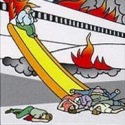Jumpingmanjim posted:So how do you keep house prices growing in a recession? As long as China is not in a recession we're fine. In Vancouver and maybe Toronto anyway.
|
|
|
|
|

|
| # ? May 23, 2024 14:01 |
|
lmao Bombardier was unable to land a single contract after the Paris air show this year: http://www.bnn.ca/News/2015/6/19/Bombardier-leaves-Paris-Airshow-without-CSeries-orders.aspx
|
|
|
|
etalian posted:lmao Bombardier was unable to land a single contract after the Paris air show this year: Bombardier's planes are poo poo and I never want to fly on any of them again, unless it's a business jet. It takes a lot of work to make a plane that's less comfortable than an Embraer, but evidently it's possible. Airbuses frighten me more, but at least they're comfortable and probably not any less safe, when you get right down to it.
|
|
|
|
http://bc.ctvnews.ca/video?clipId=639061 let them eat Fort St John
|
|
|
|
http://www.timescolonist.com/life/islander/nanaimo-grapples-with-50-million-hotel-plan-1.1975179 Why on Earth would anyone want to host a conference in Nanaimo? The island as a whole including Victoria is fundamentally unsuitable given the attendant travel hassles both to and on it, but Nanaimo? a.k.a. 'Surrey by the Sea'
|
|
|
|
Yeah, even in tourism-focused Victoria we're closing down hotels and converting them to over-priced hipter-techworker apartments because vacancy is under 75%. I can't believe Nanaimo is willingly getting strung along like that.
|
|
|
|
You guys need a multi billion dollar convention center and a casino.
|
|
|
|
Cultural Imperial posted:You guys need a multi billion dollar convention center and a casino. I can see it now! Trump Towers BC, specialty in catering to only the most crass and opulent mainland Chinese embezzlers.
|
|
|
|
Lexicon posted:http://bc.ctvnews.ca/video?clipId=639061 Every time I get angry, frustrated or pissed off at the OLP I know I can turn to Christie Clark to make myself think "Well, it could be worse!". Are there any active volcanoes in BC still? Maybe we can hope one erupts while she is flying over it to go see that great view in Kitimat or Fort St John.
|
|
|
|
So, while the Canadian economy is probably particularly poorly positioned because of our crappy fundamentals there are bubbles inflating all around the world:quote:Markets More: Nouriel Roubini 2015 Forecasts 2016 Forecasts My question to the thread: are all of these timebombs going to detonate together (or in close sequence) or is there any chance that Canada will either lead the pack or maybe even hang on longer? We've heard rumblings for some time about condos in places like Toronto not selling as fast but are we going to have to wait for the rest of the world to implode before financial Armageddon arrives in the True North?
|
|
|
|
They are starting to actually build more rental buildings, but even here in Victoria there's like 5 new condo towers going up and a bunch of mega-projects that were stalled out are getting back in gear and the whole industry is abuzz talking about a new boom and the new normal.
|
|
|
|
I can imagine how loving pissed off some of you guys are going to be if the Canadian bubble only bursts during a global downturn, because all those home owning relatives and co-workers will never give you the satisfaction of saying you were right. They'll just claim they got screwed by totally unforeseen global market forces beyond the power of any mortal to understand, let alone predict or control.
|
|
|
Ceciltron posted:I can see it now! Trump Towers BC, specialty in catering to only the most crass and opulent mainland Chinese embezzlers. Not sure how that is different from every other tower in BC. If you walk into a sales centre in Burnaby and don't look Chinese they look at you like you must be lost.
|
|
|
|
|
To answer your earlier question, people call stock market bubbles anytime the market hasn't crashed for more than two months. (Then those same people generally call 1930s global depression everytime it does correct.) ie. The allusion to 2008 being a market bubble pop, where it was something quite different that caused the GFC. Now it is certainly true that there is a lot of excess capital rolling around yield seeking, but I am not sure you are seeing irrational exuberance, or shoe shine boys with stock tips quite yet. (These things are totally happening in Chinese markets OTOH.) What you are seeing in American markets is pricing in the anticipated economic recovery. Helsing posted:I can imagine how loving pissed off some of you guys are going to be if the Canadian bubble only bursts during a global downturn, because all those home owning relatives and co-workers will never give you the satisfaction of saying you were right. They'll just claim they got screwed by totally unforeseen global market forces beyond the power of any mortal to understand, let alone predict or control. Watching some of them living with their kids in the leased BMW will suffice, even if they think it was Greek hairdressers destroying the EU that done it.
|
|
|
|
PT6A posted:Bombardier's planes are poo poo and I never want to fly on any of them again, unless it's a business jet. It takes a lot of work to make a plane that's less comfortable than an Embraer, but evidently it's possible. Airbuses frighten me more, but at least they're comfortable and probably not any less safe, when you get right down to it. That's all the airline's fault; Bombardier actually builds very good aircraft. In fact a lot of the airframe builders are very quietly getting more and more frustrated with the airlines cramming more and more seats into their aircraft and making their new, technological marvels into ever more miserable cattle cars. The biggest reasons why Bombarier can't sell their aircraft right now is because a) Bombardier management has their heads up their asses, and b) their competitors (Boeing, Airbus, EMBRAER and the like) are very heavily subsidised by their governments (both directly and indirectly with things like Ex-Im banks, military contracts and whatnot) while Stephen Harper is seemingly unwilling to help out anything that doesn't come out of the ground. MrChips fucked around with this message at 00:27 on Jun 24, 2015 |
|
|
|
National Post weighs in on foreign buyersquote:http://news.nationalpost.com/full-comment/national-post-view-scapegoating-foreign-buyers quote:Rather than impose new restrictions, cities could rezone to increase density, and reduce needless regulations that stand in the way of building new housing stock to meet demand. Vancouver has been building non stop since the 90s..?
|
|
|
|
lolling how people think more density and more housing units is somehow a panacea to the overpriced housing problem.
|
|
|
|
ocrumsprug posted:To answer your earlier question, people call stock market bubbles anytime the market hasn't crashed for more than two months. (Then those same people generally call 1930s global depression everytime it does correct.) ie. The allusion to 2008 being a market bubble pop, where it was something quite different that caused the GFC. Well this is not exactly my field but I don't see how you can deny that a big part of the story in 2008 was the popping of the American real estate bubble. Sure there are some deeper structural reasons behind the inflation of that bubble - shadow banking, financialization, perhaps even a declining rate of profit (depending on how one define's profit) - but regardless of why it happened, there was clearly an asset bubble and the popping of that bubble clearly did a lot of damage to the economy. A lot of folks lost their jobs, other people lost the equity in their homes, etc. As for current economic conditions I'm not an expert but it seems like ultra low interest rates world wide, low economic growth, and especially quantitative easing must be interfering with price discovery. How the hell could anyone be expected to know what an assets real value is in these conditions? I don't really watch global markets closely enough to have a truly informed opinion on this but what I do know about global markets is enough to make me very uneasy. The world economy looks very unstable at the moment. If you have any information to reassure me please share it. etalian posted:lolling how people think more density and more housing units is somehow a panacea to the overpriced housing problem. Seems about right. Just like the solution to a stagnant job market is to try and push more people into university or college.
|
|
|
Furnaceface posted:Every time I get angry, frustrated or pissed off at the OLP I know I can turn to Christie Clark to make myself think "Well, it could be worse!". Mt St Helens kind of dropped a bit of ash on the lower mainland. I think Baker is technically still active but hasn't exploded in ages.
|
|
|
|
|
etalian posted:lolling how people think more density and more housing units is somehow a panacea to the overpriced housing problem. It is the Law of Supply and Demand, not the Theory or suggestion. You're not an economic criminal suggesting otherwise are you?
|
|
|
|
I park in the east village in calgary for work. This was supposed to be the density driven solution, the whole area is a shithole worse than where I live. There's a homeless shelter two blocks away, some sort of addiction center right across the street from where I park and every day I drive by a huge crowd of homeless and other shady characters. The ideal place to put in low priced high density right? Nope, they're putting in huge glass towers with rather elegant shapes that I assume are going to go for big money. The Developers have already started lobbying to move the homeless shelter. There's no incentive for developers to put in anything other then luxury housing in any area in this housing bubble. It gets the best return and there's always somebody willing to stretch themselves financially to pay for it.
|
|
|
|
Helsing posted:Well this is not exactly my field but I don't see how you can deny that a big part of the story in 2008 was the popping of the American real estate bubble. Sure there are some deeper structural reasons behind the inflation of that bubble - shadow banking, financialization, perhaps even a declining rate of profit (depending on how one define's profit) - but regardless of why it happened, there was clearly an asset bubble and the popping of that bubble clearly did a lot of damage to the economy. A lot of folks lost their jobs, other people lost the equity in their homes, etc. Oh, definitely not disagreeing with you. The American real estate bubble, and the lending the fueled it was definitely where the GFC came from. (Everyone realizing that Iceland wasn't wearing any clothes a few months earlier probably wasn't unrelated since it was fueled by lending too.) My point was more this line from your quoted article. quote:Next year may see more gains across markets, but the bubble, bigger than the one before the 2008 recession, could pop in 2016. Which implies that what happened to the market in 2008 was a market bubble popping, and not the wheels coming off the global economy. Maybe it was a bubble, and the collapse of credit and everyone's economy going to poo poo simultaneously was the external event that caused it to pop. That seems to be a bit of a stretch though.
|
|
|
|
etalian posted:lmao Bombardier was unable to land a single contract after the Paris air show this year: So glad I finally landed a new better paying job. Handing in my notice was very satisfying.
|
|
|
|
The GFC wasn't really about lax lending but the immense web of poorly-understood securities that were built around those mortgages. Borrowers defaulting were responsible for it in the same way that you would be 'responsible' for blowing up my house if I bought a landmine, placed it under my house, and put the pressure sensor on your driveway.
|
|
|
|
ocrumsprug posted:It is the Law of Supply and Demand, not the Theory or suggestion. You're not an economic criminal suggesting otherwise are you? It only works in things like German system since the government discourages home price speculation while at the same time making sure the housing supply doesn't get constrained.
|
|
|
|
blah_blah posted:The GFC wasn't really about lax lending but the immense web of poorly-understood securities that were built around those mortgages. Borrowers defaulting were responsible for it in the same way that you would be 'responsible' for blowing up my house if I bought a landmine, placed it under my house, and put the pressure sensor on your driveway. Excellent point. The real estate bubble popping would not have been anywhere near as bad if billions of AAA securities, which turned out to be backed by underwater and broke home owners, weren't owned by all the financial institutions.
|
|
|
|
blah_blah posted:The GFC wasn't really about lax lending but the immense web of poorly-understood securities that were built around those mortgages. Borrowers defaulting were responsible for it in the same way that you would be 'responsible' for blowing up my house if I bought a landmine, placed it under my house, and put the pressure sensor on your driveway. This is an excellent post, and I think even people who were/are aware of this sometimes forget about it.
|
|
|
|
etalian posted:It only works in things like German system since the government discourages home price speculation while at the same time making sure the housing supply doesn't Can we stop this nonsense please, try buying/renting a desirable location in Munich, Hamburg or Cologne and see how it goes. Plenty of speculation, gentrification and constraint to go around and the only thing governments ever do is figuring out how to get the most tax out of it. Maybe we (and others like Japan, France etc) are lacking the threadworthy exaggerations of the Anglosphere because we have a smaller, grown industrial nuclei all over the place. Reading this thread gives the impression that if you aren't living in one of the top 5 North American cities you might aswell kill yourself or get eaten by mosquitoes. You can live in any 100k pop city in (southern) Germany happily forever because there will be several medium sized companies that produce competitive machines, chemicals or whatnot. e; I live in podunk nowhere population 7500, 2km from my apartment are these guys http://www.bomag.com/world/en/homepage.htm and 5km down the river are dudes that build the worlds best famous ship propellers or something https://en.wikipedia.org/wiki/Schottel_(company) sauer kraut fucked around with this message at 03:15 on Jun 24, 2015 |
|
|
|
If you haven't yet, read The Big Short : Inside the Doomsday Machine by Michael Lewis, it's a great way to start understanding some of the madness of mortgage securitisation, and soon to be made into a film starring Selena Gomez!
|
|
|
|
Also, read the vanity Fair article on aig. If you want to know about ground zero of the gfc that is it.
|
|
|
|
sauer kraut posted:Can we stop this nonsense please, try buying/renting a desirable location in Munich, Hamburg or Cologne and see how it goes. http://www.economist.com/blogs/dailychart/2011/11/global-house-prices home price index Canada, US and Germany:  home price vs rent 
|
|
|
|
HookShot posted:Mt St Helens kind of dropped a bit of ash on the lower mainland. Fault lines? Sink holes? Quick sand? Im not picky.
|
|
|
|
There is a massive fault line off the coast of Vancouver Island, there are about 20 active volcanoes in BC, and our new skytrain lines is running into trouble due to sinkholes forming every time they progress. Best Place On Earth� No quicksand though, as far as I know.
|
|
|
|
|
Longshot, but does anyone have a chart showing the average income of homeowners compared to the average price of homes? I'm not super picky about timeline but 1980-sometime in the last few years would be awesome.
|
|
|
|
|
Reverse Centaur posted:No quicksand though, as far as I know. Lulu Island near the south arm of the Fraser. Yard trailers where I work have to have pads under the legs or else they sink. If there's ever a strongish earthquake the commercial/light industrial area off Nelson Rd. is going to disappear.
|
|
|
|
Looping back to that National Post article does anyone want to comment on this quoted section? Why should the government meddle with the market?quote:While the high cost of housing is a concern for those who want to get into the market, no one seems to spare a thought for existing homeowners � pensioners, for example, or those nearing retirement, for whom the equity in their house is a kind of pension � who might prefer the value of their investment were not undermined in this way. It is not clear why it should be government policy to redistribute from all homeowners, rich or poor, to all home-buyers, poor or rich. Yet that would be the practical effect of any limitation on ownership or use, whether a ban on foreign ownership, a vacancy tax or other mechanism: not only a reduction in homeowner equity, but also reduced incentives to build new homes. Which can hardly help in the long run. In the foreign investor context, it's clear to me that if the situation is largely a pure speculation play, with a great deal of complete absentee home owners, there's a good reason for government to intervene to discourage this. However, what if the situation in Vancouver is simply one of multi-millionaires throwing around cash on homes while in the process of getting their permanent resident status, and they fully intend on living here? A housing bubble super charged by outside money has real negatives for a lot of people, but I can't come up with a great deal of reasons that feel weighty enough for the government to do anything. For example a great deal of people would be priced out of the market, but the counter argument, that one can just move to the suburbs or continue to rent, is not unreasonable.
|
|
|
|
sauer kraut posted:Can we stop this nonsense please, try buying/renting a desirable location in Munich, Hamburg or Cologne and see how it goes. At least when compared to Toronto, Berlin has better jobs that pay more, and better apartments and dairy products that cost less.
|
|
|
|
http://www.theglobeandmail.com/repo...rticle25085285/quote:Chinese envoy says lack of oversight behind Vancouver�s house-price crisis       yeah i mean it's not like china's got a problem with bubbles or anything
|
|
|
|
Femtosecond posted:Looping back to that National Post article does anyone want to comment on this quoted section? Why should the government meddle with the market? Yeah except the suburbs suck and renting is also getting more expensive, although I suppose that depends on the market. Toronto is building ridiculous quantities of condos but far fewer purpose-built rentals and renting condo units can be the worst of both worlds. It's somewhat interesting to know what the main driver of Vancouver's ridiculous price growth is, whether foreign investors make a major contribution, whether they're just money laundering/parking their cash in a safe country/actually intending to profit/ever live in their homes. But does it really matter in the end if the result is unreasonable growth in housing costs? Only a lucky few get to cash out from selling their homes at the peak.
|
|
|
|

|
| # ? May 23, 2024 14:01 |
|
eXXon posted:It's somewhat interesting to know what the main driver of Vancouver's ridiculous price growth is, whether foreign investors make a major contribution, whether they're just money laundering/parking their cash in a safe country/actually intending to profit/ever live in their homes. But does it really matter in the end if the result is unreasonable growth in housing costs? Only a lucky few get to cash out from selling their homes at the peak. Whether investors are actually present or not I think would have a significant impact on the city in a number of areas, such as the street level vibrancy of certain neighbourhoods, and school enrolment. The 'absentee investor' scenario is the only one I could see irritating a broad enough selection of people to awaken a government into any sort of action to stem foreign investment.
|
|
|





























